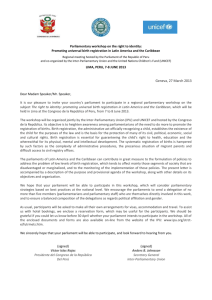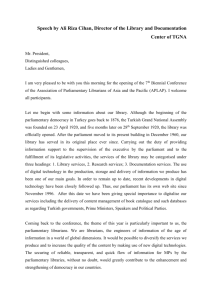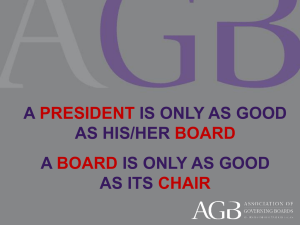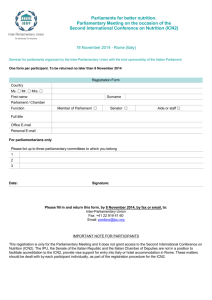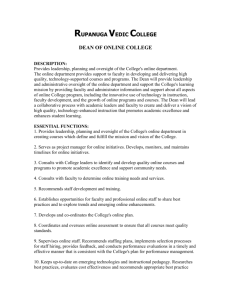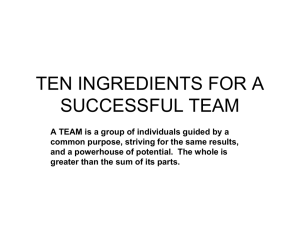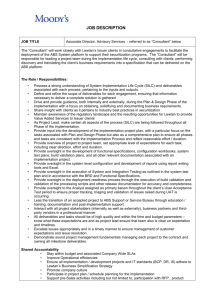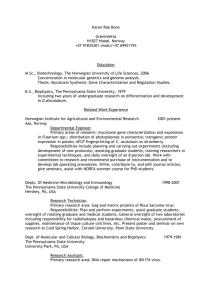Call for written input - Inter
advertisement
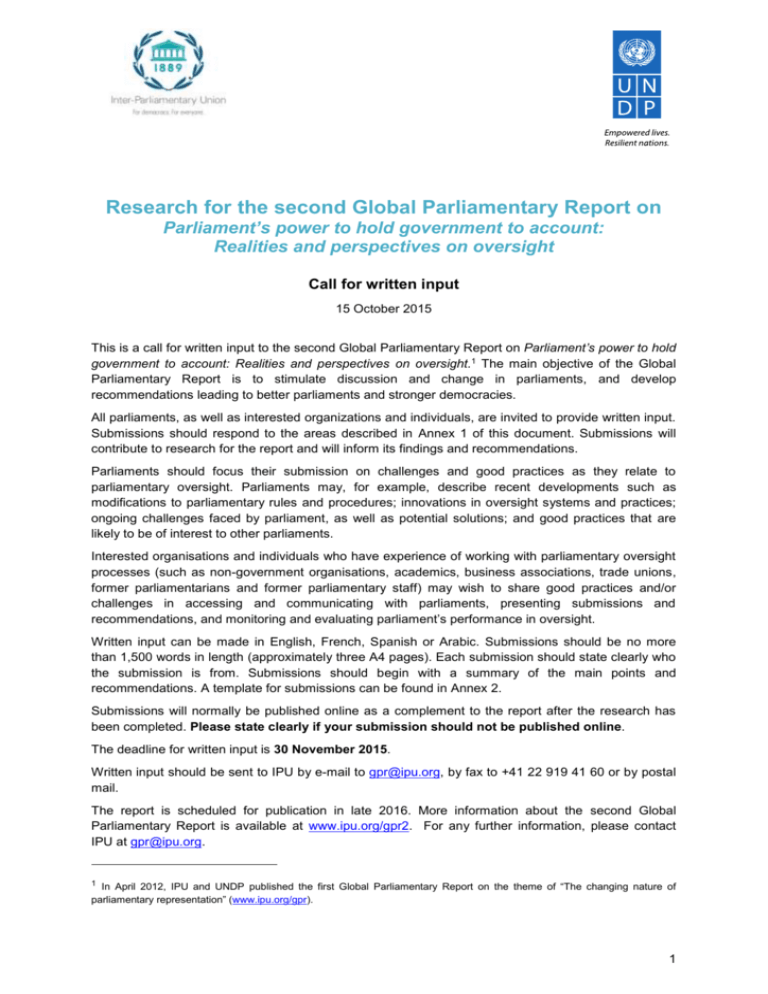
Research for the second Global Parliamentary Report on Parliament’s power to hold government to account: Realities and perspectives on oversight Call for written input 15 October 2015 This is a call for written input to the second Global Parliamentary Report on Parliament’s power to hold government to account: Realities and perspectives on oversight.1 The main objective of the Global Parliamentary Report is to stimulate discussion and change in parliaments, and develop recommendations leading to better parliaments and stronger democracies. All parliaments, as well as interested organizations and individuals, are invited to provide written input. Submissions should respond to the areas described in Annex 1 of this document. Submissions will contribute to research for the report and will inform its findings and recommendations. Parliaments should focus their submission on challenges and good practices as they relate to parliamentary oversight. Parliaments may, for example, describe recent developments such as modifications to parliamentary rules and procedures; innovations in oversight systems and practices; ongoing challenges faced by parliament, as well as potential solutions; and good practices that are likely to be of interest to other parliaments. Interested organisations and individuals who have experience of working with parliamentary oversight processes (such as non-government organisations, academics, business associations, trade unions, former parliamentarians and former parliamentary staff) may wish to share good practices and/or challenges in accessing and communicating with parliaments, presenting submissions and recommendations, and monitoring and evaluating parliament’s performance in oversight. Written input can be made in English, French, Spanish or Arabic. Submissions should be no more than 1,500 words in length (approximately three A4 pages). Each submission should state clearly who the submission is from. Submissions should begin with a summary of the main points and recommendations. A template for submissions can be found in Annex 2. Submissions will normally be published online as a complement to the report after the research has been completed. Please state clearly if your submission should not be published online. The deadline for written input is 30 November 2015. Written input should be sent to IPU by e-mail to gpr@ipu.org, by fax to +41 22 919 41 60 or by postal mail. The report is scheduled for publication in late 2016. More information about the second Global Parliamentary Report is available at www.ipu.org/gpr2. For any further information, please contact IPU at gpr@ipu.org. 1 In April 2012, IPU and UNDP published the first Global Parliamentary Report on the theme of “The changing nature of parliamentary representation” (www.ipu.org/gpr). 1 Annex 1: Outline of the second Global Parliamentary Report on Parliament’s power to hold government to account: Realities and perspectives on oversight The second Global Parliamentary Report will address two central questions: How effective is parliament in carrying out its role to hold government to account? How could it become more so? To answer these central questions, the report will investigate four inter-related areas: Enabling environment. How conducive is the political and institutional environment to effective oversight? What influence do the system of government and the electoral system have? How responsive is government to parliamentary oversight? What is the impact of political party competition and the role of the opposition? Is there public demand for oversight? Institutional capacity. What efforts are made to strengthen parliament’s capacity for effective oversight? What are recent developments in parliamentary rules, procedures, systems and tools? What is the capacity of the parliamentary administration to support oversight with independent research and analysis? How can partnerships such as those with Supreme Audit Institutions and civil society be strengthened? Political will. What motivates individual parliamentarians to carry out oversight? What are the incentives and disincentives for parliamentarians to undertake oversight activities? What is the link between representation and oversight, and meeting citizens’ needs and expectations? Measurement and evaluation. How does parliament account to the public for its oversight performance? To what extent can the impact of parliamentary oversight on the functioning of government and on people’s lives be identified? What are the challenges of measuring effectiveness in parliamentary oversight? The report will mainstream a gender perspective throughout these areas by investigating the willingness and capacity of parliaments to keep governments accountable on the goal of gender equality and ensure parliamentary oversight is gender-sensitive, as well as the opportunities available to both women and men parliamentarians to engage in oversight and the impact that increased numbers of women in parliament has on parliamentary oversight. Is there an enabling environment that promotes gender equality and women’s political empowerment? Has parliament created mechanisms to facilitate oversight on gender equality commitments such as dedicated gender committees or women’s caucuses, and if so, how effective are they? Major thematic areas that will be covered throughout the report include budgetary oversight, oversight of performance in different policy areas and oversight of international obligations, such as the Sustainable Development Goals. The report will include a discussion of the importance of oversight; the meaning and constituent elements of “effective oversight”; and what happens in the absence of oversight. The report will take into account different national contexts, such as post-conflict and fragile States; democratic transitions; Small Island Developing States; and decentralized systems of government. Based on the research, the report will make recommendations on ways to increase the overall effectiveness of parliamentary oversight, by: improving the environment in which oversight can take place; building parliament’s institutional capacity for oversight; reinforcing political will among parliamentarians to carry out oversight activities. 2 Annex 2: Template: Written input to the second Global Parliamentary Report on Parliament’s power to hold government to account: Realities and perspectives on oversight Please indicate the name of the parliament, organization or person making this submission Submitted by: Date: Please indicate whom we can contact for further information about this submission (contact details will not be published) Name of person: Job title: Telephone: E-mail: Please check this box if this submission should not be published online: Summary of the main points and recommendations Full text of the submission 3

